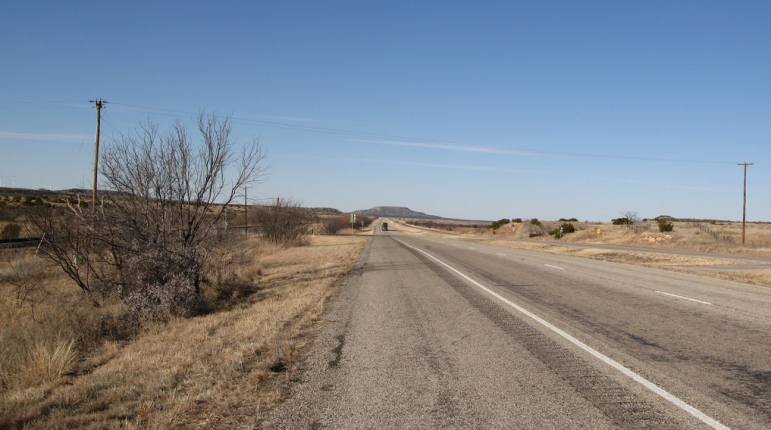
wstera2 / Flickr (license: http://creativecommons.org/licenses/by-nc-sa/2.0/deed.en)
Abilene, Texas.
The stage is set with a family sitting at home in Coleman, Texas on a hot Sunday afternoon playing dominos. The father-in-law suggested they take a drive to Abilene. Everyone liked the idea and they hopped in the car for the long, hot, dusty drive.

On their return, a family member dishonestly asked -- "It was a great trip wasn't it?" One by one everyone complained they didn’t want to go in the first place but acquiesced, thinking the others wanted to take the trip.
The Abilene Paradox is an example of "groupthink" -- decisions are reached in a group more so on social conformity because humans tend to go along with the trend of the group. We see this played out in real life when those who challenge the establishment are ostracized, ignored and sometimes punished. What we don't realize is there may be a majority who are silent because social disincentives discourage them from openly voicing their opinions.
The Abilene Paradox has become a simple but effective tool in public policy-making when someone in the group asks, "Are we taking a trip to Abilene?" This opens the door for open and frank discussions that can avoid poor decisions that lead to ineffective programs and practices in juvenile justice.
Take for example the many states, including Georgia, which enacted tougher penalties for juveniles in the 80s and 90s including automatic transfer to adult court on violent offenses. I recall in 1994 when our policymakers pushed the "School Safety and Juvenile Justice Reform Act” hearing statements that we had to get tougher on kids to deter them from violence.
I understand that we didn't have the benefit of the adolescent brain research then telling us that kids are neurologically wired to do stupid things. But parents know this by experience, and most legislators are parents.
So why did Georgia and so many other states take a trip to Abilene? And why do some remain in Abilene?
I am convinced that if confronted today with the truth about automatic transfer laws, many legislators would confess their regrets of getting in that car to go to Abilene in the first place.
This regret begins with their appreciation of the fact that studies show that these "get tough" adult transfer laws have no deterrent on juvenile crime and violence. The results of these studies go to the heart of why they were passed in the first place -- and although the heart was right, the head was wrong!
I am also convinced of this confession, because the many legislators I know do not want to have anything to do with making kids worse or contributing to a system of hyper-recidivism that compromises community safety. Other studies show that kids treated as adults have higher recidivism rates than those treated in the juvenile justice system for the same violent offenses because:
-
The stigmatization and other negative effects of labeling juveniles as convicted felons.
-
The sense of resentment and injustice juveniles feel about being tried and punished as adults.
-
The learning of criminal mores and behavior while incarcerated with adult offenders.
-
The decreased focus on rehabilitation and family support in the adult system.
I didn't recall anyone back in 1994 questioning the establishment --"Are we going to Abilene?" But I take great comfort in policymakers today asking instead, "Can we leave Abilene?"
Georgia's recent adult and juvenile justice reforms are prime examples of what can happen when policymakers question the extended stay in Abilene. More policy makers are turning to experts in data analysis and system reform as Georgia did using the Pew Charitable Trust and Annie E. Casey Foundation as well as local advocacy groups like Voices for Children and JustGeorgia to be catalysts for reform.
The data informs us about the types of kids we are letting in the front door of the juvenile justice system, what we are doing to them inside the door, and what they look like when they leave through the back door. When we realized that an exorbitant amount of money was going toward the incarceration of nonviolent kids and yielding high re-offense rates, it was time to jump in the car and leave Abilene.
Our Georgia policymakers are not done. They created a commission on criminal justice reform, that includes juvenile justice, at the request of the governor. This means we will be asking on matters of present circumstance if we are in Abilene and on questions of new consideration if we are going to Abilene.

And, just where did we get the original idea to go to Abilene? Behind every policy fad, you can usually find someone making a pile of money. The key questions are, “what is today’s Abilene, and who is selling it to us?”